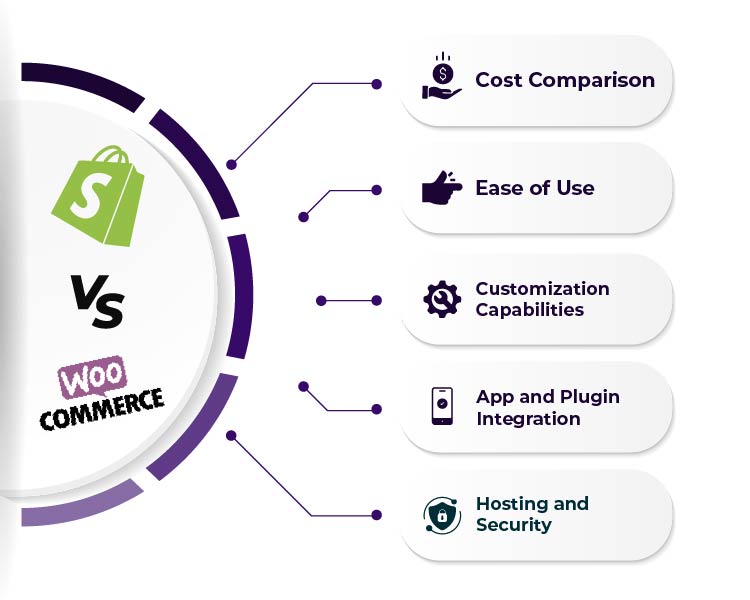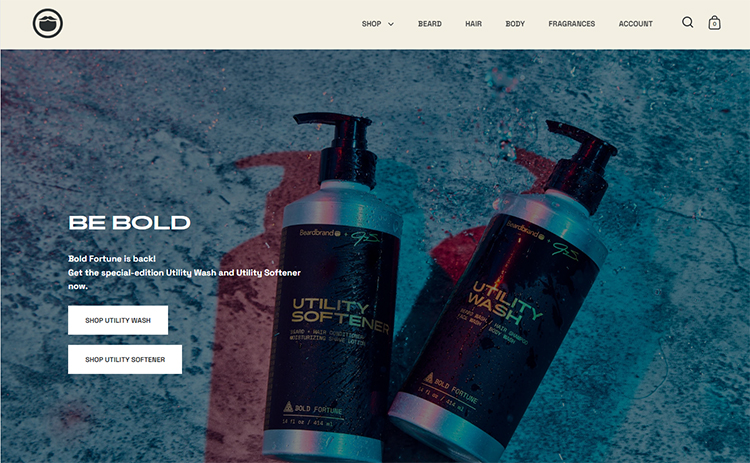Shopify vs WooCommerce: Which E-commerce Platform is Right for You?

In the ever-evolving landscape of online shopping, selecting the right e-commerce platform has become a pivotal decision for businesses of all sizes. Whether you’re a seasoned entrepreneur or just stepping into the digital marketplace, the platform you choose can significantly impact your online success.
Today, we bring you an in-depth analysis of two prominent e-commerce solutions – Shopify and WooCommerce. Our aim is to provide a comprehensive and easy-to-understand comparison that caters to readers of all age groups. As we explore the features, benefits, and drawbacks of each platform, you’ll gain valuable insights to make an informed choice that aligns with your unique business requirements.
Understanding Shopify:
Shopify is a popular e-commerce platform that helps businesses set up and manage their online stores with ease. It has gained immense popularity due to its user-friendly interface, making it accessible to users of all technical backgrounds. Whether you’re a tech-savvy entrepreneur or a beginner with limited technical expertise, Shopify provides a straightforward and intuitive experience.
One of the significant advantages of Shopify is its all-in-one solution. It takes care of hosting, security, and updates, allowing you to focus on your business without worrying about the technical aspects. This feature is especially beneficial for small business owners and startups who may not have the resources to manage a complex website.
Shopify also boasts an extensive app store, offering a wide range of add-ons and plugins. These apps allow you to enhance your store’s functionality and provide additional features to meet your specific business needs. From customer support and marketing to inventory management and payment gateways, Shopify’s app store has got you covered.
However, like any platform, Shopify has its drawbacks. The main concern for some users is the monthly fees associated with using the platform. While the pricing plans are designed to cater to various business sizes, some may find it more cost-effective to explore other options if they are on a very tight budget.
Another point of consideration is the level of customization Shopify offers. While the platform provides a good range of customizable themes and templates, some businesses with highly specific design requirements may find themselves limited by the platform’s pre-built options.
Shopify is an excellent choice for individuals and businesses looking for an easy-to-use, all-in-one e-commerce solution.
Exploring WooCommerce:
Now, let’s delve into the world of WooCommerce, a powerful e-commerce plugin designed for WordPress. WooCommerce has earned a strong reputation for its flexibility and cost-effectiveness, making it a favourite among businesses seeking complete control over their online stores.
One significant advantage of WooCommerce is its cost-effectiveness. As the plugin is free, it allows businesses on a budget to establish an online presence without heavy upfront expenses. However, additional costs for extensions and premium features may arise as your business grows.
WooCommerce shines in customization, offering a vast library of themes and plugins to design a unique store that aligns with your brand. Its plugin ecosystem provides a wide range of add-ons, allowing you to tailor your store’s functionality to your specific needs.
However, WooCommerce may require more technical know-how during the initial setup, and managing hosting and security independently as your store grows. It’s ideal for those seeking complete control but may not be the best fit for those preferring a more user-friendly approach.
In totality, WooCommerce is a robust, cost-effective solution for businesses seeking customization and control over their online stores, especially those familiar with WordPress and e-commerce plugins. For a more user-friendly and hands-off experience, other platforms like Shopify may be better suited.
Key Differences Between Shopify and WooCommerce

Now, let’s uncover the key differences between Shopify and WooCommerce to help you make an informed decision about which platform is the best fit for your e-commerce venture:
Cost Comparison:
Shopify: The platform operates on a subscription-based model, with monthly fees ranging from basic to advanced plans. Thi
s can be convenient for businesses that prefer a predictable cost structure but may be less suitable for budget-conscious startups.
WooCommerce: Being an open-source plugin, WooCommerce itself is free to use. However, keep in mind that you may incur costs for hosting, premium themes, and additional extensions as your store grows.
Ease of Use:
Shopify: Known for its user-friendly interface, Shopify offers a simple setup process that requires little technical expertise. This makes it an excellent choice for beginners and entrepreneurs who want a hassle-free experience.
WooCommerce: While WooCommerce seamlessly integrates with WordPress, it may require more technical know-how during the initial setup. Familiarity with WordPress and e-commerce plugins can be beneficial for a smoother experience.
Customization Capabilities:
Shopify: While Shopify provides a variety of customizable themes and templates, the level of customization is somewhat limited compared to WooCommerce. This can be advantageous for businesses that prioritise ease of use over extensive design modifications.
WooCommerce: Offering complete control over your store’s design, WooCommerce excels in customization. With an extensive library of themes and plugins, you can create a unique and personalised shopping experience for your customers.
App and Plugin Integration:
Shopify: The platform boasts an extensive app store, offering a wide range of add-ons and integrations to e
nhance your store’s functionality. The curated selection ensures a smooth experience, but some apps may involve additional costs.
WooCommerce: With access to the vast WordPress plugin ecosystem, WooCommerce provides a plethora of options for extending your store’s capabilities. This modularity allows you to pick and choose the exact features your business needs.
Hosting and Security:
Shopify: As a hosted platform, Shopify takes care of hosting and security, ensuring a secure and stable online store. This relieves businesses of the responsibility of managing server infrastructure.
WooCommerce: Since WooCommerce is a plugin for WordPress, you’ll need to handle hosting and security independently. While this allows for greater control, it also means taking on additional technical responsibilities.
At last, Shopify and WooCommerce cater to different business needs and priorities. Shopify excels in user-friendliness and managed hosting, making it an ideal choice for those seeking a hassle-free experience. On the other hand, WooCommerce offers complete customization and flexibility, making it suitable for businesses with some technical expertise and a preference for design control. Consider your specific requirements and business goals when selecting the e-commerce platform that aligns perfectly with your vision.
Real-Life Success Stories:
Let’s explore some real-life success stories of businesses that have thrived using both Shopify and WooCommerce, showcasing how these platforms have empowered entrepreneurs to achieve remarkable online success.
Shopify Success Stories:

Gymshark: Gymshark is a fitness apparel brand that started as a small business selling gym wear through Shopify. With a focus on social media marketing and influencer collaborations, Gymshark rapidly grew its online presence, and today it has become a global fitness apparel brand with millions of followers and customers worldwide.

Kylie Cosmetics: Kylie Cosmetics took the beauty industry by storm when it was launched by Kylie Jenner in 2015. The brand’s online success is attributed to Shopify’s easy-to-use platform, which allowed Kylie to quickly set up her e-commerce store and manage product launches with ease. Today, Kylie Cosmetics is a multi-million dollar beauty empire.
MVMT Watches: MVMT Watches, a direct-to-consumer watch brand, gained immense popularity using Shopify. The platform’s user-friendly interface and seamless integration with marketing tools enabled MVMT to build a strong online presence. Through smart marketing strategies and innovative designs, MVMT Watches became a go-to brand for trendy and affordable timepieces.

WooCommerce Success Stories:

Beardbrand: Beardbrand is a men’s grooming company that has achieved remarkable success using WooCommerce. With a focus on offering high-quality beard care products and grooming accessories, Beardbrand leveraged WooCommerce’s customization capabilities to create a unique and visually appealing online store.
Through the power of WooCommerce’s extensive plugin ecosystem, Beardbrand provided personalised shopping experiences for its customers. Features like product bundles, subscription options, and detailed product pages allowed them to cater to the diverse needs of their audience.
Minaal: Minaal, a travel gear company, utilised WooCommerce to create a sleek and modern online store. The platform’s customization options allowed Minaal to provide a unique and tailored shopping experience for their customers, leading to international acclaim for their innovative travel products.

ThinOptics: ThinOptics, a company specialising in compact reading glasses, found success with WooCommerce. By leveraging WooCommerce’s extensive plugin ecosystem, ThinOptics integrated advanced features like product customization options and international shipping, leading to substantial growth and customer satisfaction.
These success stories demonstrate the versatility and effectiveness of both Shopify and WooCommerce as e-commerce solutions. Regardless of the platform chosen, entrepreneurs have achieved remarkable results by leveraging the strengths of each platform to build and grow their online businesses. You can visit these websites to learn more about their success stories and how they have leveraged Shopify and WooCommerce to build thriving online ventures.
Conclusion:
To sum up, choosing between Shopify and WooCommerce depends on your specific needs and goals. Consider factors like costs, ease of use, customization, and integration possibilities. Try demos or free versions to get a feel for each platform before making your decision. Remember, both Shopify and WooCommerce can lead you to e-commerce success, so choose wisely based on your unique requirements. Happy selling!













